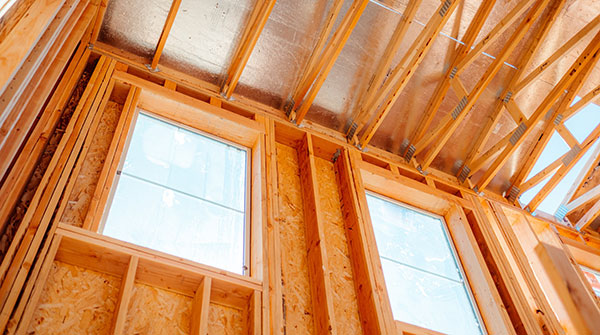It was a slow start to the year for homebuilders in Calgary and Edmonton.
According to data released Monday by Canada Mortgage and Housing Corporation, the total number of housing starts in the Calgary census metropolitan area of 642 in January was down eight per cent compared to a year ago while in the Edmonton census metropolitan area it dropped by 16 per cent to 667 units.
In Calgary, single-detached starts fell by four per cent to 259 units while the ‘all other’ category, which is primarily condo/apartments, was down 11 per cent to 383.
In Edmonton, the single-detached sector rose by 31 per cent year-over-year to 276 but the ‘all other’ sector decreased by 32 per cent to 391.
And Alberta saw total starts decline by 12 per cent from a year ago to 1,471 comprised of a decrease of 22 per cent in the ‘all other’ sector to 847 units but a five per cent increase in single-detached to 624.
The CMHC said the trend in housing starts across Canada was 210,915 units in January compared to 212,212 units in December 2019. This trend measure is a six-month moving average of the monthly seasonally adjusted annual rates (SAAR) of housing starts.
“The national trend in housing starts essentially held steady in January,” said Bob Dugan, CMHC’s chief economist, in a news release. “Lower-trending starts in Vancouver were partly offset by stronger activity in Montréal, while the trend in Toronto was stable at the start of the year.”
CMHC said it uses the trend measure as a complement to the monthly SAAR of housing starts to account for considerable swings in monthly estimates and obtain a more complete picture of Canada’s housing market. In some situations, analyzing only SAAR data can be misleading, as they are largely driven by the multi-unit segment of the market which can vary significantly from one month to the next, it said.
CMHC said the standalone monthly SAAR of housing starts for all areas in Canada was 213,224 units in January, an increase of 8.8 per cent from 195,892 units in December. The SAAR of urban starts increased by 9.8 per cent in January to 202,407 units. Multiple urban starts increased by 13.6 per cent to 155,140 units in January while single-detached urban starts decreased by 0.9 per cent to 47,267 units.
“With recent data pointing to further tightening in demand-supply conditions in many resale markets, a solid pace of home building to start the year will be welcomed. Quebec and Ontario led the increase in January, which is not surprising as those provinces are home to some of the country’s tightest markets,” said Josh Nye, Senior Economist, RBC Economics, in a commentary note.
“BC’s pullback from earlier record highs continued, though with the province’s resale market heating up again it’s hard to see that trend being sustained. We think the pace of starts will remain close to the current six-month trend rate, and while that’s stronger than the underlying pace of household formation, if anything there’s upside risk with markets thirsty for supply.”
Katherine Judge, an economist with CIBC Economics, said homebuilding in Canada bounced back in January, with the volatile multifamily segment accounting for the entire acceleration.
“The 213K pace of housing starts was up from 196K in the prior month, and is the highest reading seen since September. However, it was only marginally above the consensus forecast for a more modest pickup. The fact that the surprise was driven by multiples means that the GDP impact will be limited. In the months ahead, strong population growth and low mortgage rates relative to year ago levels should continue to support homebuilding at just above the 200K mark,” she said.
Mario Toneguzzi is a business reporter in Calgary.
![]() The views, opinions and positions expressed by columnists and contributors are the author’s alone. They do not inherently or expressly reflect the views, opinions and/or positions of our publication.
The views, opinions and positions expressed by columnists and contributors are the author’s alone. They do not inherently or expressly reflect the views, opinions and/or positions of our publication.

